Safety Net Impact on Family Stabilization: Observations from Service Providers
By Kristy Baughman, UCS Director of Education and Planning
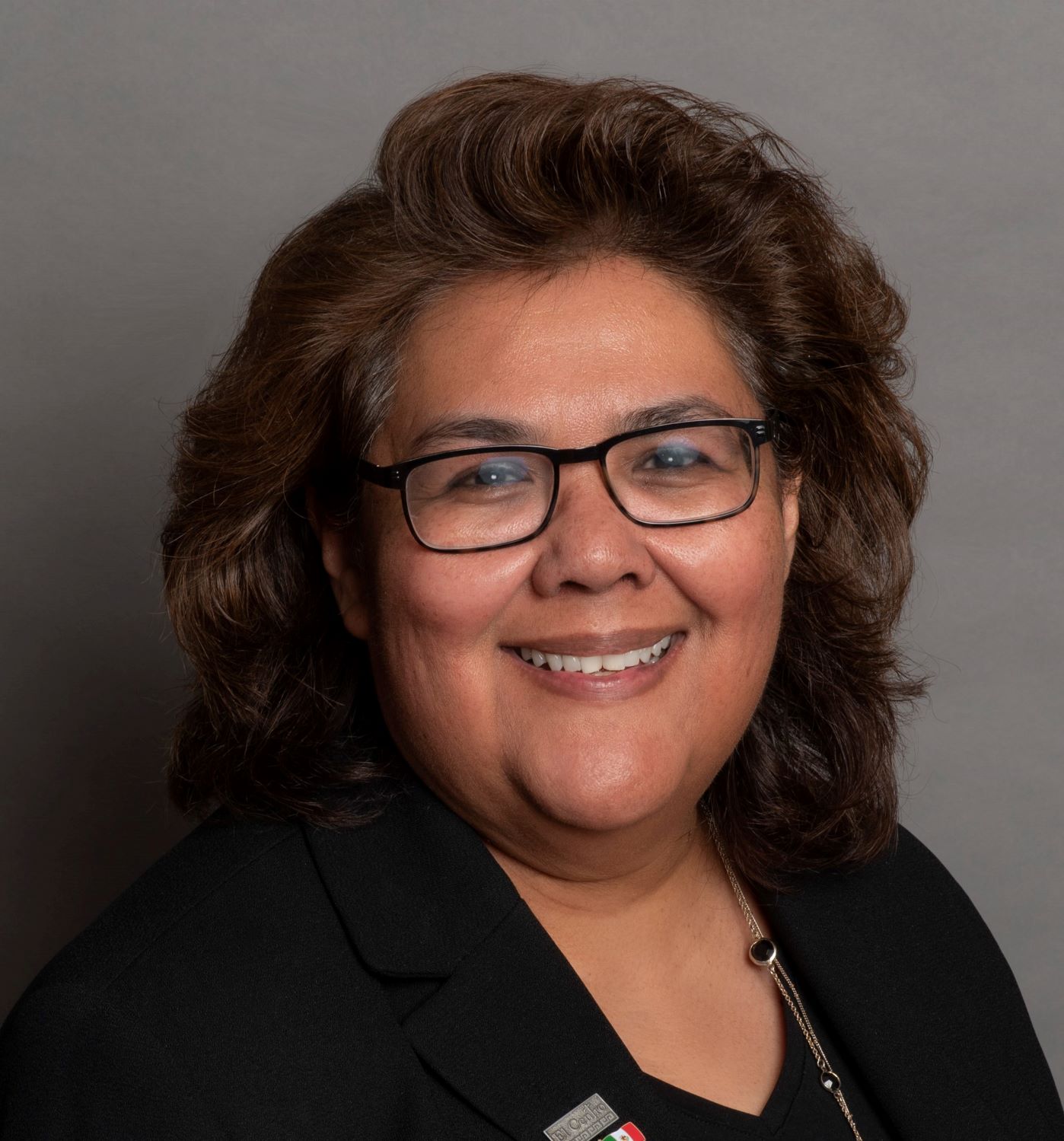
Irene Caudillo
President and CEO
El Centro, Inc.

Linda Gallgher
Strategic Initiatives Administrator
Kansas City Region of the Kansas Department for Children and Families
As UCS explored the importance and the impact of safety net resources for the Family First research series, we wanted to hear from partners in our community with experience as service providers. I recently had the opportunity to sit down for a discussion about safety net services that help stabilize families with Irene Caudillo, President and Chief Executive Officer for El Centro, Inc., and Linda Gallagher, Strategic Initiatives Administrator in the Kansas City Region of the Kansas Department for Children and Families (DCF).
Our conversation began with some reflection on lessons learned from temporary increases in benefit levels during the COVID pandemic. Studies have shown that these temporary increases resulted in lower poverty rates, increased savings, and improved financial stability for families. Both Linda and Irene saw significant positive outcomes for families they serve. Irene shared that at El Centro, “greater supports (during the pandemic) really allowed for economic stability for the families we serve. The increase in Supplemental Nutrition Assistance (SNAP) benefits, rent and utility assistance, and tax credits for children really allowed families to focus on their everyday needs. Families could navigate taking care of children who weren’t in school and focus on finding employment without worrying about eviction.”
Linda agreed that expanded SNAP benefits in particular provided significant relief. One example Linda shared was an additional SNAP allotment for families that were receiving these benefits and had children who qualified for the Free and Reduced School Lunch program. “This was to accommodate children who were learning remotely and not in school getting the meals that so many families relied upon. That additional allotment was very helpful to families that were having trouble being able to afford to put food on their family's table,” said Linda.
Linda continued: “One thing I think we can highlight from the pandemic when we think about safety net supports and the impact on women is the importance of having good quality, accessible and affordable childcare available to working families.”
We then turned our discussion to focus on how women, specifically, are affected by the family stabilization impact of safety net services. “In times of family crisis or vulnerability, stressors just kind of build up and layer on parents, and especially on women. There is no doubt that when women, particularly women with children, have supports in meeting basic needs such as shelter, utilities, and food, they're more able to focus on their families and their parenting. They have more bandwidth to focus on education and securing good jobs,” Linda said.
Data provided by the U.S. Census Bureau showed that female headed households with children represented 50% of all households receiving SNAP benefits in Johnson County in 2021. Additionally, female headed households with children under the age of five in Johnson County had a poverty rate of 49% in 2021.
“Over 60% of those served by El Centro are women-led households. In Latino culture, women do run the household as far as organizing education, healthcare and nutrition. Safety net resources really can offer that stability for women to focus on so many other things. Even just getting some nutritional food on the table for their young children, for example, can make other things seem so much more manageable,” said Irene.
I asked both women to look toward the future and think about how safety net services could be improved. Increased benefit levels, higher income qualifications, and more streamlined application processes were among the improvements highlighted. The need for service agencies to be fully staffed was another issue raised during the conversation. “This is another lasting effect of the pandemic. The world of work has truly changed. It’s a complex issue that is not easily addressed, but the lack of staff impacts the ability of service agencies to provide the resources our community truly needs,” said Linda. Irene commented that staffing challenges also come into play with partnerships and personal relationships. When clients develop a relationship with a staff member, starting over with someone new can be a real setback for them.
We closed our conversation with some thoughts on advocacy and the impact that members of our community can have. Linda emphasized that individuals must be part of any process of change. “Legislators get so many emails generated from organizations. When a constituent contacts them and puts their experience and their story in their own words, that is very powerful for a legislator.”
Irene agreed that the voice of the individual needing or receiving services is essential. “I'm proud that El Centro works to provide our clients information and support in a culturally and linguistically appropriate way,” said Irene. “This really helps to eliminate barriers for our families. At El Centro we aim to provide information and education, in a way that helps our clients advocate for themselves and their families in accessing those resources they need. Our goal is to really work with clients to build a foundation of understanding and good decision making.”
Irene Caudillo is President and Chief Executive Officer for El Centro. She serves on the boards of the Wyandotte Health Foundation, Health Forward Foundation, KU Advancement Board, Greater Kansas City United Way and the University of St. Mary Board of Trustee.
Linda Gallagher is Strategic Initiatives Administrator in the Kansas City Region of the Kansas Department for Children and Families. She served in the Kansas House of Representatives from 2015-18, representing District 23.
Olathe Mother, Daughter Praise Safety-Net Services
By Mike Sherry
OnPoint Communications
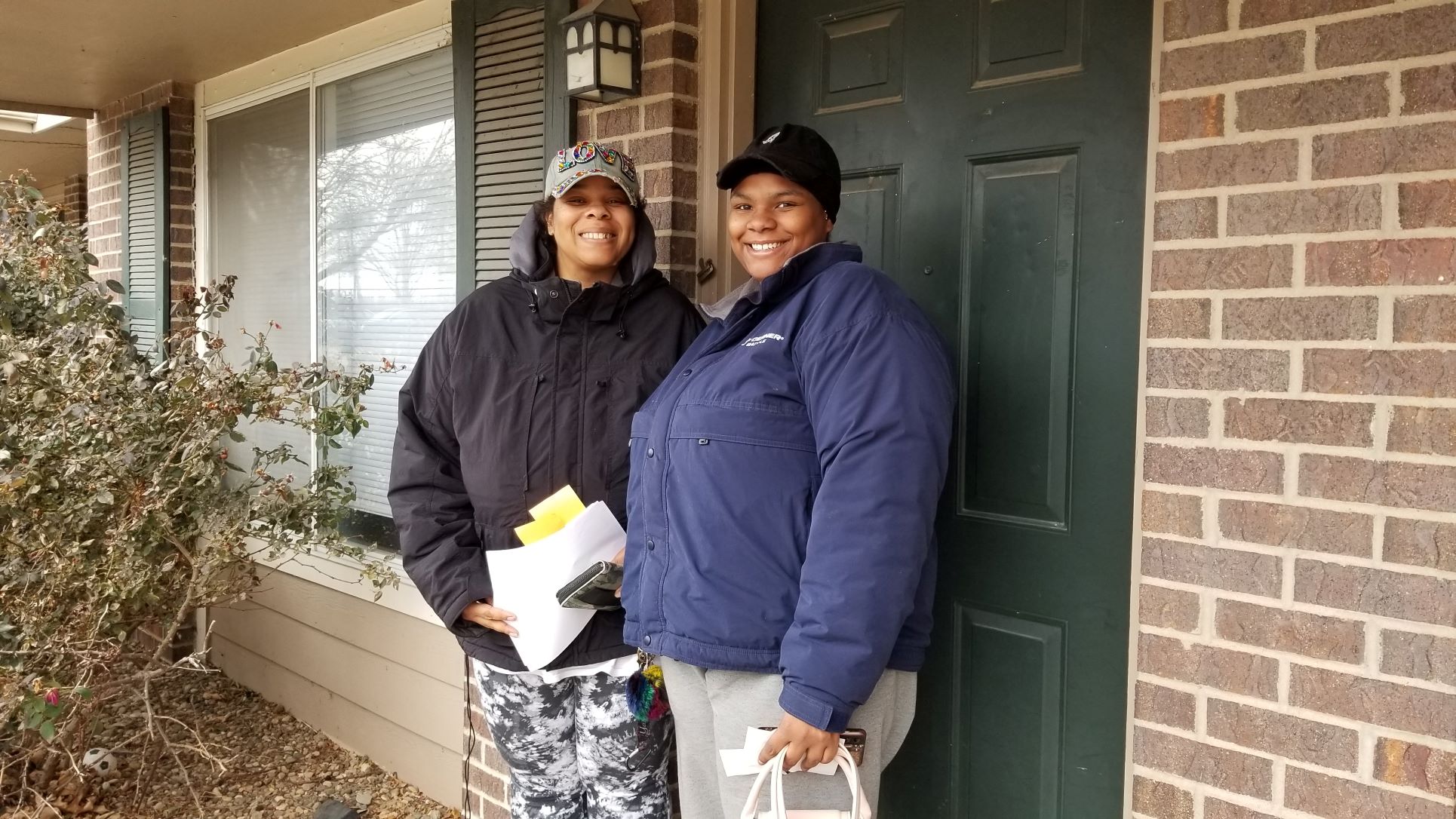
Kim First, left, and her daughter, Journey Luster, stand outside their Olathe apartment. Rental assistance is one of many benefits that help sustain the pair.
If it is always darkest before the dawn, winter was pitch black for Kim First four years ago.
It was then that she spent nearly three months living in her Jeep Liberty with her teenage daughter, overnighting in places like the parking lot of a former grocery store in Kansas City, Kansas.
The situation brightened in February 2019 when First, 44, and her daughter, Journey Luster, moved into the Salvation Army’s family shelter in Olathe. Mother and daughter can’t say enough good things about Mina Foster, the housing services director at the Olathe Salvation Army.
“I tell Mina all the time that I didn’t know what it was like to be blessed until I came here,” First said.
She and Luster, 19, are also grateful for the above-and-beyond support of Heather Schoonover, the Olathe Public Schools’ community liaison. Schoonover’s help included navigating Luster through the college application process and giving her stuffed animals for her bedroom when she and her mom moved into their Olathe apartment last year.
First and Luster are, in fact, examples of how the array of Kansas safety-net programs can be lifelines for a family in need.
When Luster was younger, the state paid for childcare and also provided food staples through the Women, Infants, and Children (WIC) program.
Nowadays, the Olathe Housing Authority is providing rental assistance, the Supplemental Nutrition Assistance Program (SNAP) is helping with groceries, and Medicaid is providing much-needed health coverage as First grapples with a gastrointestinal problem that has gradually worsened and left her unable to work. Poverty and chronic health conditions can result in a vicious cycle—people living in poverty are more likely to develop chronic health problems that prevent them from getting and keeping good paying jobs, which keeps them in poverty and increases the likelihood that health conditions worsen.
Through the years, First has worked as a phlebotomist and in customer service. She lost one job early on in the COVID-19 pandemic when her employer, a door-servicing company, lost business quickly as employers closed offices and went to remote work.
When she reflects on all the services she has received, First considers it a positive experience, “especially when you can go and ask someone for some type of assistance, and know that you need it, and not having it thrown back in your face or you have to owe for it or anything like that.”
There is room for some improvement, First said, such as increasing monthly SNAP benefits and extending WIC eligibility until children are in their teens. She also senses a bias against single-child households.
“When you go ask for assistance, and you only have one child, they seem to give you the bare minimum or not take you as seriously because they feel like, ‘You only have that one responsibility — what’s the big deal?’”
First said struggling families and individuals could also use additional legal representation. First is trying to resolve several traffic citations, many incurred for lack of registration or insurance when she and Luster were homeless.
First is without a car now, her last one was repossessed several months ago when she fell behind on payments. She and her daughter sometimes have to rely on costly ride-hailing services to get around, so First said a program that provides vehicles would be much appreciated.
“Nothing fancy, nothing new, just a reliable vehicle,” she said. “To stay afloat (in the Kansas suburbs) you need a car.”
Fact Sheet: Public Assistance Supports Stable Families
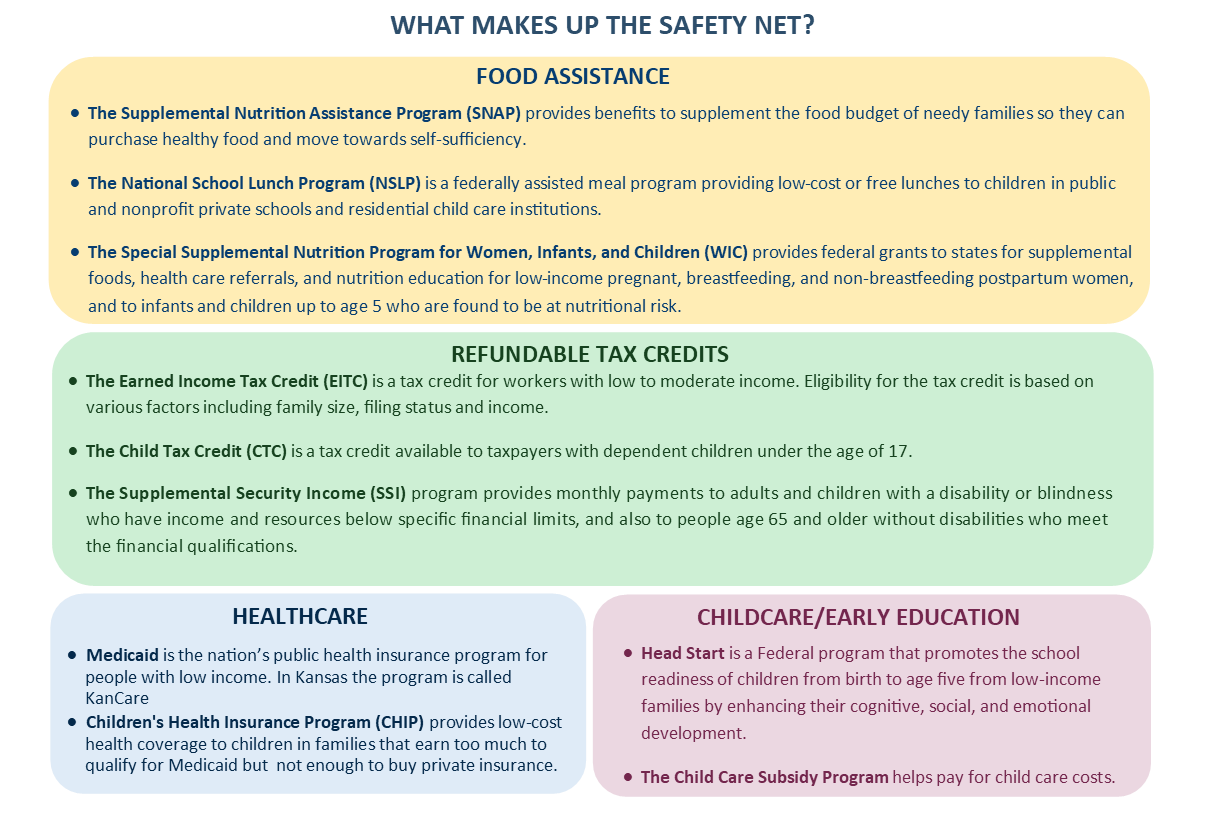
Public assistance programs, often referred to as “safety net” programs, have the potential to help low-income families meet the cost of basic needs and provide a bridge to long term economic stability. Programs such as food assistance, direct cash assistance, and refundable tax credits are associated with immediate and long-term improvements for families. Assistance in meeting basic needs is also linked to higher quality parenting and increased safety for children.
Women are more likely than men to need and access safety net services throughout the course of their lives. According to the U.S. Census American Community Survey 2021 1-year estimates, women represented nearly 60% of Johnson County residents living in poverty in 2021. Female headed households with children under five in Johnson County were nearly four times more likely to be living in poverty than male headed households with children under five. Women over 65 were nearly three times more likely than men over 65 to live alone, and nearly twice as likely to live in poverty in 2021.
Not all people in need are able to benefit from these programs, however. Income eligibility requirements and application processes vary between programs, and many poor and low-income people do not qualify for benefits that could keep them from sinking into deeper poverty. Research has shown that a strong safety net has lifelong benefits for vulnerable children and families. There are a number of actions that elected officials could take to increase the health and well-being of those in need in the state of Kansas, including Medicaid Expansion, expanding eligibility for programs, increasing benefit levels, and streamlining application processes.
Read our report on the safety net in our fact sheet.
Support UCS in the United Way Campaign!
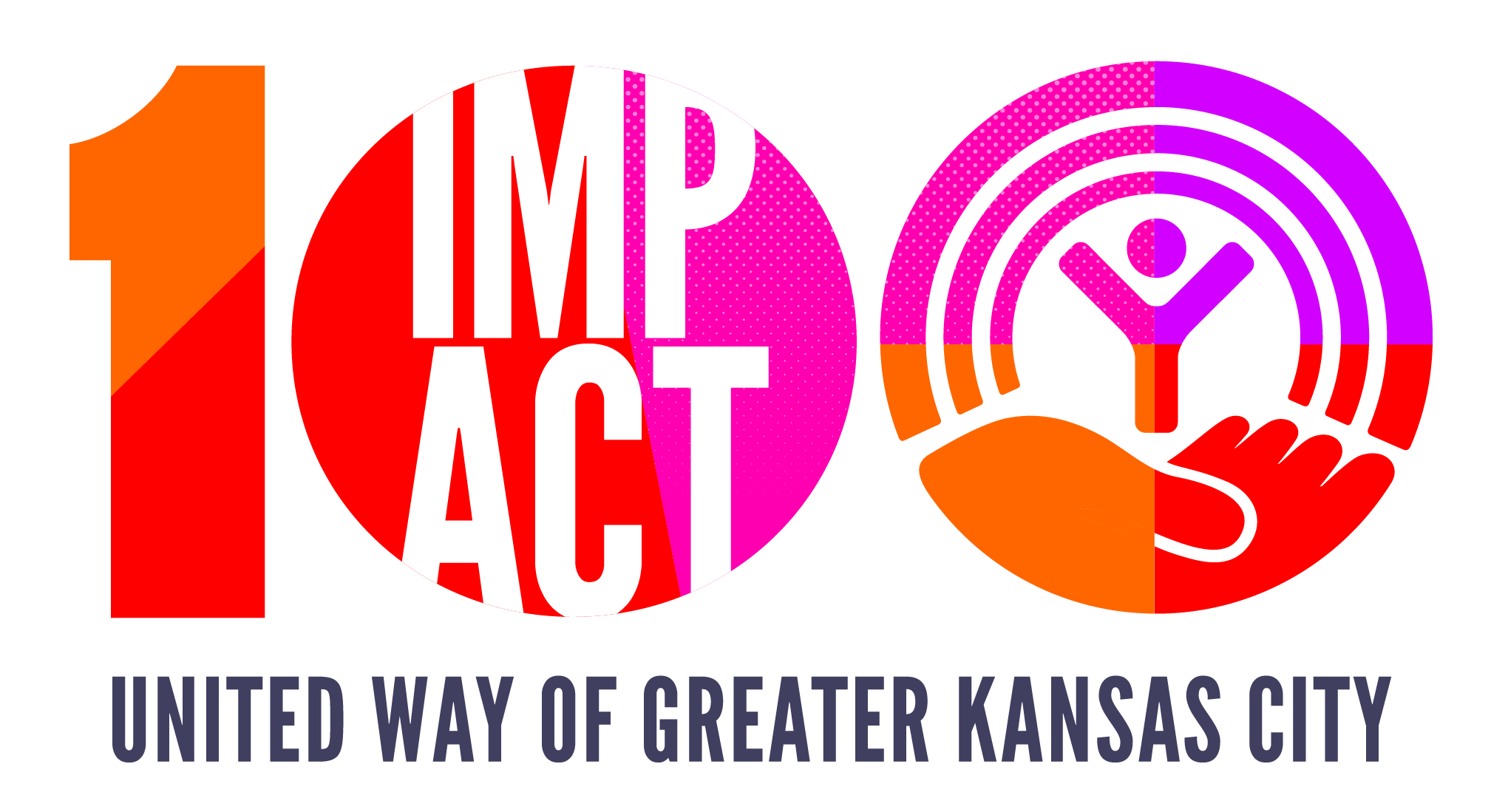
As United Way workplace campaigns ramp up across the metro, we wanted to let you know that we're one of United Way's inaugural Impact 100 organizations. With that designation, you can easily direct your campaign contribution to United Community Services of Johnson County. Simply choose United Community Services of Johnson County from the list of Impact 100 organizations when completing your pledge.
Since 1967, UCS has incubated programs to meet identified community needs, bringing the community together to promote economic stability by furthering health and human services initiatives. Often UCS's work has a "ripple effect" inspiring new opportunities for improving the lives of Johnson County residents through education and advocacy, collaborative planning, and targeted resource allocation.
UCS will use United Way campaign contribution funding to help us continue this important work. You can view a visual and interactive timeline of our projects and initiatives through the years on our website here.
Health Insurance Marketplace Open with Application Assistance from Health Partnership Clinic

The Health Insurance Marketplace (also known as the “Marketplace” or “exchange”) opens Tuesday, Nov. 1 and will close Sunday, Jan. 15. The Marketplace provides health plan shopping and enrollment services through websites, call centers and in-person help.
Health Partnership Clinic offers free, in-person help with the health insurance application. Open enrollment is from Tuesday, Nov. 1 to Sunday, Jan. 15.
Call 913-730-3653 to schedule an appointment. A certified application counselor is available to help you in English or Spanish.
When you apply for individual and family coverage through the Marketplace, you’ll provide income and household information. You’ll find out if you qualify for premium tax credits and other savings that make insurance more affordable; or coverage through the Medicaid and Children’s Health Insurance Program (CHIP).
The Kansas Homeowner Assistance Fund (KHAF) Program is Open for Applications!
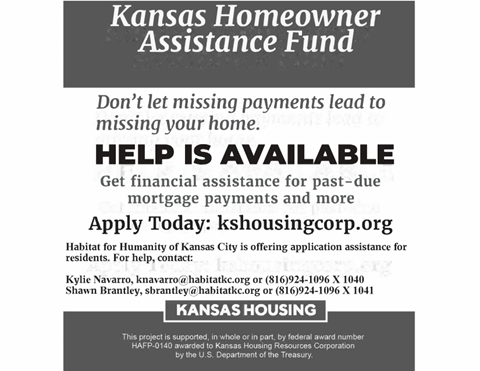
Help for Kansas Homeowners – Don’t Wait
If the pandemic has created financial stress causing you to miss mortgage and/or property tax payments, you may qualify for the Kansas Homeowner Assistance Fund (KHAF), a program for low- to moderate-income homeowners. Learn more and apply here: https://kshousingcorp.org/kansas-homeowner-assistance-fund #homeownership #mortgageassistance #avoidforeclosure
Help for Kansas Homeowners – Apply Now
If you’re behind on mortgage or property tax payments, help is here. The Kansas Homeowner Assistance Fund is helping homeowners across the state who have fallen behind on payments. Apply today.
https://kshousingcorp.org/kansas-homeowner-assistance-fund
Help for Kansas Homeowners – Funds won’t last long.
Don’t wait to ask for help if you need it. The Kansas Homeowner Assistance Fund can help you pay your past due bills:
- Mortgages
- Property taxes
- Homeowner association fees
https://kshousingcorp.org/kansas-homeowner-assistance-fund
The purpose of the KHAF program, is to prevent foreclosures on homeowners suffering pandemic-related financial hardship.
Homeowner submits an online application.
* Application is processed to ensure all eligibility criteria are met.
* If approved, funds are paid directly to the service provider(s), who apply to the homeowner’s account(s).
Applicants must meet all of the following criteria:
- You own your home in Kansas and are at least 30 days past due on mortgage or property taxes.
- The property (a single-family home, one-to-four-unit dwelling, condo, townhome, or manufactured home) is your primary residence.
- Your recent income did not exceed 150 percent of your area’s median income.
- Your household has experienced financial hardship during the COVID pandemic and attests to this hardship.
For help with your application or understanding the process, Habitat for Humanity of Kansas City is providing assistance. Reach out to:
Kylie Navarro, knavarro@habitatkc.org or (816)924-1096 X 1040
Shawn Brantley, sbrantley@habitatkc.org or (816)924-1096 X 1041


